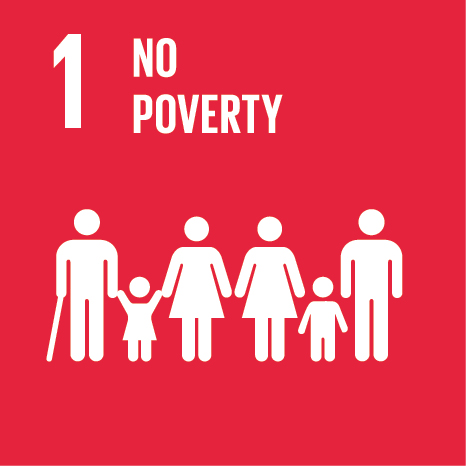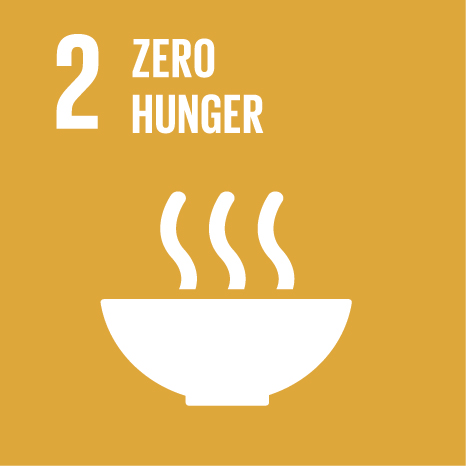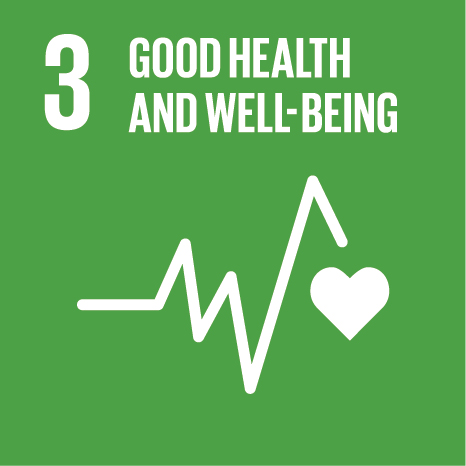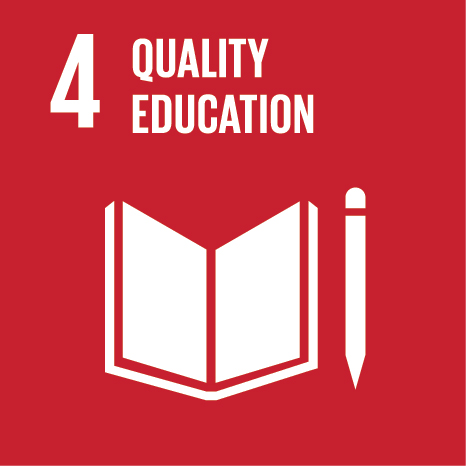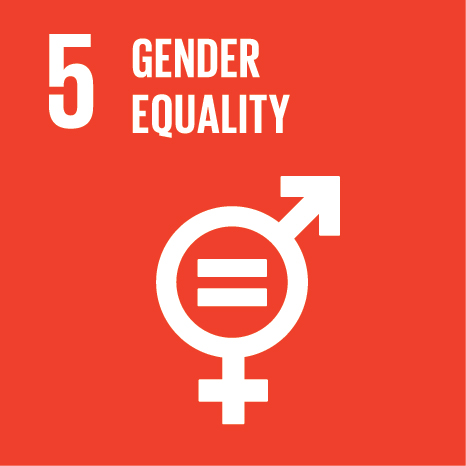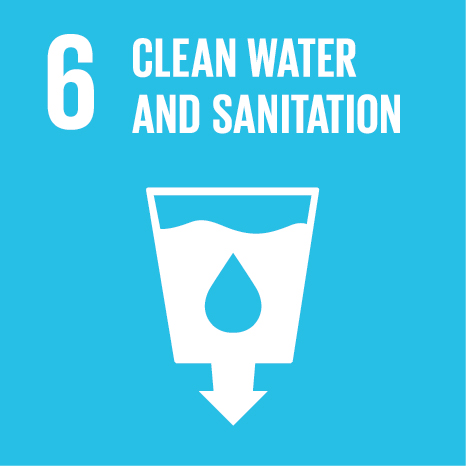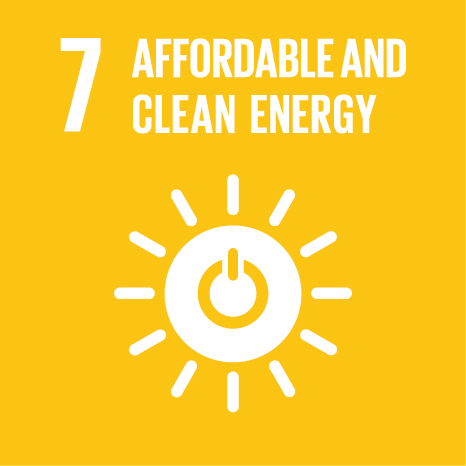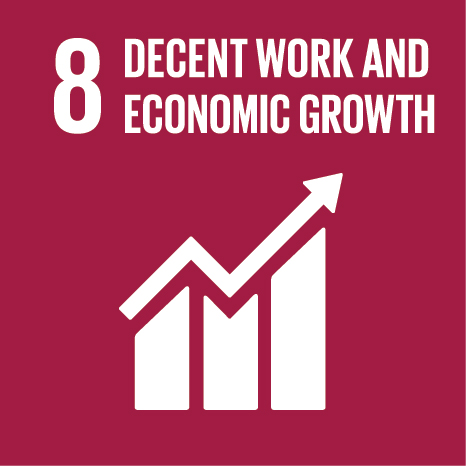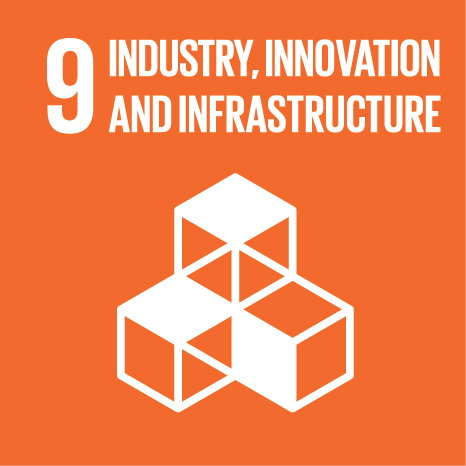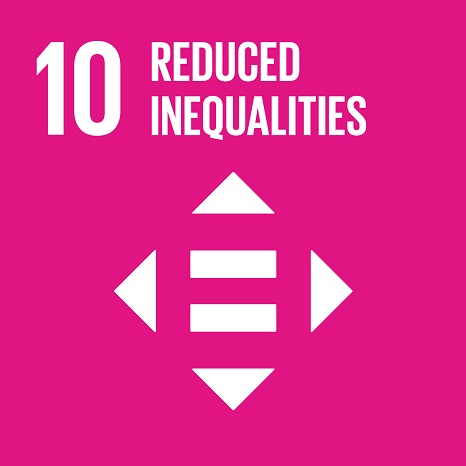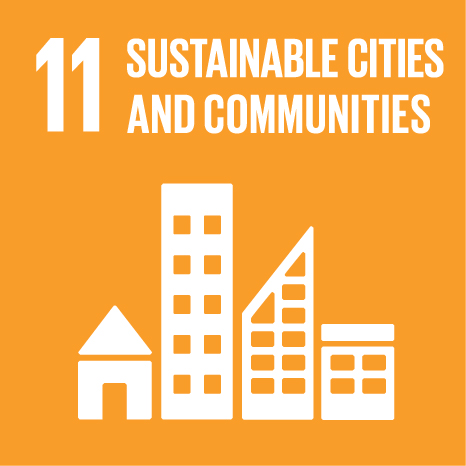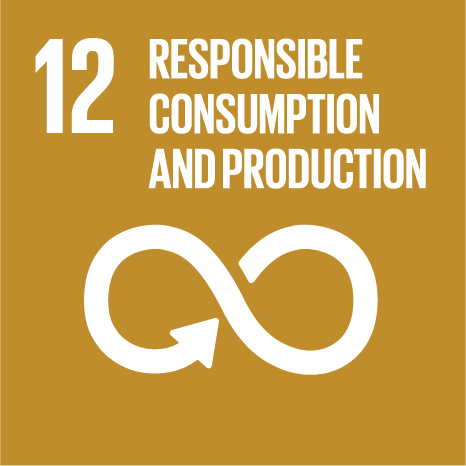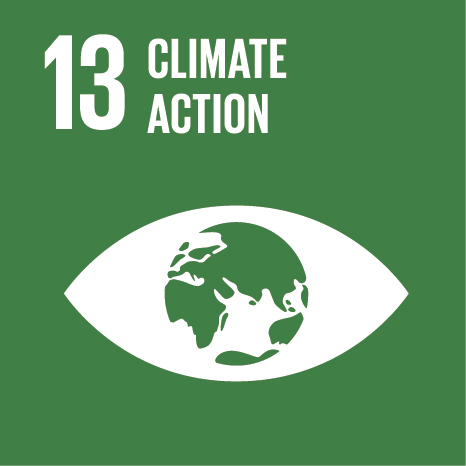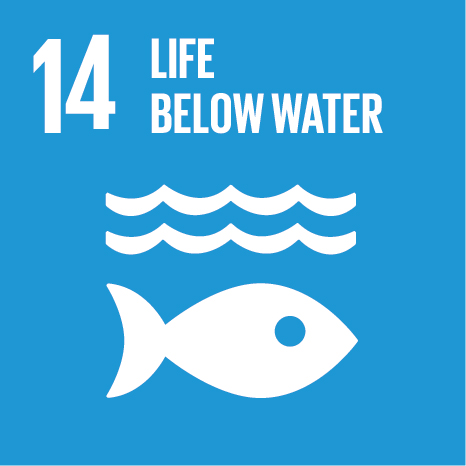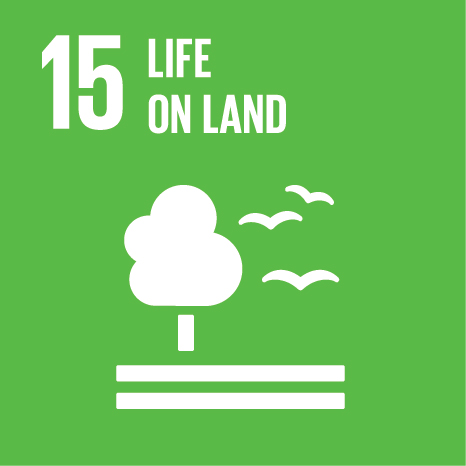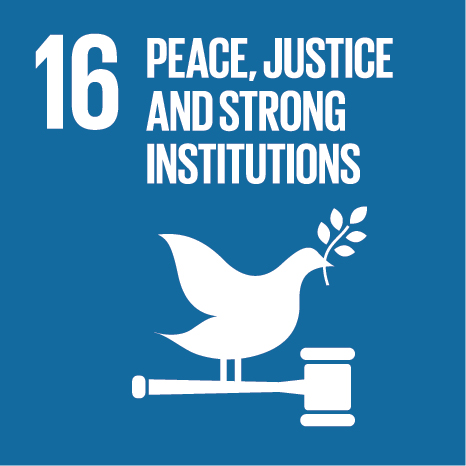SDG 16: Peace, Justice and Strong Institutions
Our Goals in Action
16.2. University governance measures
Universitas Negeri Jakarta (UNJ) upholds good governance principles by promoting transparency, accountability, and integrity in all institutional processes. Through participatory decision-making, digital governance systems, and regular internal audits, UNJ ensures ethical leadership and fosters a culture of trust and justice within the university community.
1.1 16.2.1. UNJ have elected representation on the university's highest governing body from students, faculty, and staff (non-faculty employees)
Based on the Decree of the Minister of Higher Education, Science, and Technology of the Republic of Indonesia No. 155/M/KEP/2024 concerning the Appointment of Members of the UNJ MWA for the 2024-2029 Period. The UNJ MWA, which consists of 17 members, consists of the Minister, the Chancellor, the Chair of the University Academic Senate (SAU), representatives of the community, representatives of lecturers, representatives of alumni, representatives of educational staff, and representatives of students.
https://unj.ac.id/majelis-wali-amanat/
https://timesindonesia.co.id/indonesia-positif/525207/prof-nizam-terpilih-sebagai-ketua-mwa-unj-jakarta-periode-20242029
https://www.kompas.com/edu/read/2025/01/22/182728771/prof-nizam-terpilih-sebagai-ketua-mwa-unj-periode-2024-2029
https://unj.ac.id/majelis-wali-amanat/
https://timesindonesia.co.id/indonesia-positif/525207/prof-nizam-terpilih-sebagai-ketua-mwa-unj-jakarta-periode-20242029
https://www.kompas.com/edu/read/2025/01/22/182728771/prof-nizam-terpilih-sebagai-ketua-mwa-unj-periode-2024-2029
1.2 16.2.2 UNJ as a body recognizes the existence of independent student unions
Breaking the Record for Most Participants, PMII UNJ's Mapaba Attended by 98 Students.
PMII at Jakarta State University Improves Student Thinking Ahead of the 2024 Regional Elections.
Interaction Between Members of Extra-Campus Organizations at Jakarta State University (A Descriptive Study of the Indonesian Islamic Student Association and the Indonesian Islamic Student Movement for the 2023-2024 Period). Welcoming the 2024 Regional Elections, PMII UNJ Enhances Student Insight at Jakarta State University.
https://jakarta.nu.or.id/jakarta-raya/pecah-rekor-peserta-terbanyak-mapaba-pmii-unj-diikuti-98-mahasiswa-sRtIB
https://www.beritamerdekaonline.com/pmii-universitas-negeri-jakarta-tingkatkan-kualitas-pemikiran-mahasiswa-jelang-pilkada-2024
https://oaj.jurnalhst.com/index.php/jpi/article/view/995
https://www.klikanggaran.com/peristiwa/11513210385/sambut-pesta-demokrasi-pilkada-2024-pmii-unj-tingkatkan-wawasan-mahasiswa-universitas-negeri-jakarta
PMII at Jakarta State University Improves Student Thinking Ahead of the 2024 Regional Elections.
Interaction Between Members of Extra-Campus Organizations at Jakarta State University (A Descriptive Study of the Indonesian Islamic Student Association and the Indonesian Islamic Student Movement for the 2023-2024 Period). Welcoming the 2024 Regional Elections, PMII UNJ Enhances Student Insight at Jakarta State University.
https://jakarta.nu.or.id/jakarta-raya/pecah-rekor-peserta-terbanyak-mapaba-pmii-unj-diikuti-98-mahasiswa-sRtIB
https://www.beritamerdekaonline.com/pmii-universitas-negeri-jakarta-tingkatkan-kualitas-pemikiran-mahasiswa-jelang-pilkada-2024
https://oaj.jurnalhst.com/index.php/jpi/article/view/995
https://www.klikanggaran.com/peristiwa/11513210385/sambut-pesta-demokrasi-pilkada-2024-pmii-unj-tingkatkan-wawasan-mahasiswa-universitas-negeri-jakarta
1.3 16.2.3 UNJ as an agency has written policies and procedures to identify local stakeholders outside the university and interact with them
The UNJ Quality Assurance System page states that "this policy encourages the participation of all stakeholders, including the community, who must actively participate in the quality assurance process." The "UNJ-ACADEMIC-POLICY" document discusses interactions between academic elements, but it is unclear to what extent this policy specifically extends to external interactions (with non-academic stakeholders). With the change in status to a Legal Entity State University (PTN-BH), UNJ is directed to become an impactful and inclusive campus. A more flexible management architecture allows the university to develop external partnerships and broader interactions.
https://pps.unj.ac.id/informasi-pemangku-kepentingan
https://ppid.unj.ac.id/wp-content/uploads/2021/08/RPJP-UNJ-2020-2045-Siap-Cetak-21-Jan-2021-utk-KIP_compressed.pdf
https://fik.unj.ac.id/wp-content/uploads/2023/11/Buku-Renstra-PPM-UNJ-2021-2025.pdf
https://pps.unj.ac.id/wp-content/uploads/2021/01/RPJP-UNJ-2020-2045-Siap-Cetak-21-Jan-2021-send-to-Pak-Totok_compressed.pdf
https://pps.unj.ac.id/informasi-pemangku-kepentingan
https://ppid.unj.ac.id/wp-content/uploads/2021/08/RPJP-UNJ-2020-2045-Siap-Cetak-21-Jan-2021-utk-KIP_compressed.pdf
https://fik.unj.ac.id/wp-content/uploads/2023/11/Buku-Renstra-PPM-UNJ-2021-2025.pdf
https://pps.unj.ac.id/wp-content/uploads/2021/01/RPJP-UNJ-2020-2045-Siap-Cetak-21-Jan-2021-send-to-Pak-Totok_compressed.pdf
1.4 16.2.4 UNJ as a body ensures that local stakeholders in the university, including local residents, local government, and civil society representatives, have meaningful mechanisms to participate in university decision making
The UNJ Minutes document on Research and Community Service states that community service must be oriented towards community participation. The UNJ Chancellor's Regulation on Research and Community Service mentions "socialization" as part of the research/community service stages. The UNJ Academic Policy states that in addition to internal control, there is "stakeholder input" as an external mechanism or external control over academic policies. The SPMI (Internal Quality Assurance System) standard at UNJ states that standard development is carried out in accordance with regulations and with "stakeholder input."
https://ppid.unj.ac.id/wp-content/uploads/2024/10/2024-Notula-Pertor-UNJ-Tentang-Tentang-Penelitian-dan-Pengabdian-Kepada-Masyarakat-Di-Lingkungan-Universitas-Negeri-Jakarta.pdf
https://ppid.unj.ac.id/wp-content/uploads/2024/10/Masukan-Draft-Pertor-ttg-Penelitian-dan-Pengabdian-kepada-Masyarakat-27-Juni-2024_Review-Yasnita.pdf
https://ppid.unj.ac.id/wp-content/uploads/2024/10/2024-Notula-Pertor-UNJ-Tentang-Tentang-Penelitian-dan-Pengabdian-Kepada-Masyarakat-Di-Lingkungan-Universitas-Negeri-Jakarta.pdf
https://ppid.unj.ac.id/wp-content/uploads/2024/10/Masukan-Draft-Pertor-ttg-Penelitian-dan-Pengabdian-kepada-Masyarakat-27-Juni-2024_Review-Yasnita.pdf
1.5 16.2.5 UNJ as a body has publications on the university's principles and commitments to organized crime, corruption & bribery
In the Declaration of a Corruption-Free Zone, UNJ has expressed its institutional commitment by establishing an integrity zone towards a corruption-free zone. UNJ recognizes the importance of anti-corruption aspects in university governance. UNJ has a "Code of Ethics" guideline for educational staff, which is part of an effort to maintain academic integrity and professional ethics. UNJ Journal Publication Ethics, within the journal environment published by UNJ.
https://journal.unj.ac.id/unj/index.php/jmb/article/view/9103
https://ejurnalqarnain.stisnq.ac.id/index.php/ALADALAH/article/view/610
https://sps.unj.ac.id/wp-content/uploads/2021/01/Salinan_Peraturan-Rektor-No-9-Tahun-2019-tentang-Kode-Etik-dan-Etika-Akademik-UNJ.pdf
https://sps.unj.ac.id/wp-content/uploads/2021/01/SK-Rektor-Nomor-1724-SP-2005-ttg-KOde-Etik-Dosen.pdf
https://journal.unj.ac.id/unj/index.php/jmb/article/view/9103
https://ejurnalqarnain.stisnq.ac.id/index.php/ALADALAH/article/view/610
https://sps.unj.ac.id/wp-content/uploads/2021/01/Salinan_Peraturan-Rektor-No-9-Tahun-2019-tentang-Kode-Etik-dan-Etika-Akademik-UNJ.pdf
https://sps.unj.ac.id/wp-content/uploads/2021/01/SK-Rektor-Nomor-1724-SP-2005-ttg-KOde-Etik-Dosen.pdf
1.6 16.2.6 UNJ as an institution has a policy to support academic freedom.
The document "Minutes of the Meeting of the Directorate of Academic Freedom, Academic Freedom of Speech, and Scientific Autonomy of UNJ" states that the academic community has the freedom to explore and develop science and technology through the responsible implementation of the Tri Dharma of Higher Education. The document "UNJ Academic Policy" states that UNJ guarantees scientific autonomy and upholds academic freedom and freedom of expression. Government Regulation Number 31 of 2024 regulates academic freedom and freedom of academic expression as part of national higher education legislation.
https://ppid.unj.ac.id/wp-content/uploads/2024/10/2024-Notula-pertor-Tentang-Kebebasan-Akademik-Kebebasan-Mimbar-Akademik-dan-Otonomi-Keilmuan-di-UNJ.pdf
https://ppid.unj.ac.id/wp-content/uploads/2024/10/Masukan-Draft-Pertor-ttg-Kebebasan-Akademik_Review-Yasnita.pdf
https://peraturan.bpk.go.id/Download/356068/PP%20Nomor%2031%20Tahun%202024.pdf
https://ppid.unj.ac.id/wp-content/uploads/2024/10/2024-Notula-pertor-Tentang-Kebebasan-Akademik-Kebebasan-Mimbar-Akademik-dan-Otonomi-Keilmuan-di-UNJ.pdf
https://ppid.unj.ac.id/wp-content/uploads/2024/10/Masukan-Draft-Pertor-ttg-Kebebasan-Akademik_Review-Yasnita.pdf
https://peraturan.bpk.go.id/Download/356068/PP%20Nomor%2031%20Tahun%202024.pdf
1.7 16.2.7 UNJ as an agency has published university financial data
The UNJ PPID website offers "Audited Financial Reports" for various years that can be viewed and downloaded. UNJ also provides a Financial Dashboard (SAKU-UNJ) containing budget data, realization, and remaining budget. Thus, as an institution, UNJ is indeed transparent in publishing its financial data, at least in the form of annual financial reports and budget dashboards.
https://ppid.unj.ac.id/wp-content/uploads/2023/06/Laporan-keuangan-tahun-2022-dan-audit-independen.pdf
https://www.scribd.com/document/853488835/LAI-KEUANGAN-UNJ-2023
https://ppid.unj.ac.id/wp-content/uploads/2023/06/Laporan-keuangan-tahun-2022-dan-audit-independen.pdf
https://www.scribd.com/document/853488835/LAI-KEUANGAN-UNJ-2023
16.3 Working with government
As a higher education institution committed to sustainable development, Jakarta State University (UNJ) continues to strengthen its role in establishing strategic partnerships with local, regional, and national governments. The Government Partnership Initiative is a concrete manifestation of UNJ's commitment to the Sustainable Development Goals (SDGs), specifically SDG 16: Peace, Justice, and Resilient Institutions. With a collaborative spirit and the principles of an impactful university, UNJ is committed to being a trusted government partner in building a transparent, equitable, and community-oriented policy ecosystem.
2.1 16.3.1 UNJ as an agency provides specialist expert advice to local, regional or national governments
Several UNJ activities show that this institution is involved in collaboration with local governments, regional legislative bodies, or other public institutions, in the form of research, community service, or policy advocacy: (1) Collaboration with local governments in the field of education/human resources. (2) Participation in policy forums/collaboration with legislative bodies. (3) Scientific/internal studies of institutions that conduct studies on public issues.
https://subang.go.id/berita/pemda-subang-dan-unj-tandatangani-mou-peningkatan-kompetensi-sdm-kedua-pihak
https://bekasikota.go.id/detail/guna-penuhi-kekurangan-guru-pemkot-bekasi-jalin-kerjasama-dengan-unj-dan-universitas-lainnya
https://unj.ac.id/fip-unj-jalin-kerjasama-strategis-dengan-dprd-kota-bekasi-untuk-tingkatkan-kualitas-pendidikan
https://cssmora.org/cssmora-unj-gelar-c-boost-dorong-kerjasama-akademisi-dan-pemerintah-dki-jakarta
https://jdih.kemenpora.go.id/mou/detail/1/6/nota-kesepahaman-antara-kementerian-pemuda-dan-olahraga-dengan-universitas-negeri-jakarta.html
https://www.antaranews.com/berita/4299307/ikada-unj-siapkan-kajian-ilmiah-atasi-berbagai-persoalan-masyarakat
https://subang.go.id/berita/pemda-subang-dan-unj-tandatangani-mou-peningkatan-kompetensi-sdm-kedua-pihak
https://bekasikota.go.id/detail/guna-penuhi-kekurangan-guru-pemkot-bekasi-jalin-kerjasama-dengan-unj-dan-universitas-lainnya
https://unj.ac.id/fip-unj-jalin-kerjasama-strategis-dengan-dprd-kota-bekasi-untuk-tingkatkan-kualitas-pendidikan
https://cssmora.org/cssmora-unj-gelar-c-boost-dorong-kerjasama-akademisi-dan-pemerintah-dki-jakarta
https://jdih.kemenpora.go.id/mou/detail/1/6/nota-kesepahaman-antara-kementerian-pemuda-dan-olahraga-dengan-universitas-negeri-jakarta.html
https://www.antaranews.com/berita/4299307/ikada-unj-siapkan-kajian-ilmiah-atasi-berbagai-persoalan-masyarakat
2.2 16.3.2 UNJ as an agency provides outreach, general education, skills enhancement and capacity building to policy makers and legislators on relevant topics such as economics, law, technology, migration and displacement, and climate change.
Several UNJ activities and institutional structures demonstrate its commitment to the Tri Dharma of Higher Education (education, research, and community service), which encompasses elements of community service, training, and external collaboration. For example: (1) Community Service. (2) International cooperation / partnership. (3) Development of professionalism of university human resources. (4) Student entrepreneurship program.
https://fis.unj.ac.id/bose/?page_id=2273
https://unj.ac.id/international/international-partnership
https://memoirs-c.org/index.php/main/article/view/36/30
https://www.ijstr.org/final-print/jan2020/Evaluation-Of-The-Entrepreneurial-Student-Program-At-Universitas-Negeri-Jakarta-.pdf
https://fis.unj.ac.id/bose/?page_id=2273
https://unj.ac.id/international/international-partnership
https://memoirs-c.org/index.php/main/article/view/36/30
https://www.ijstr.org/final-print/jan2020/Evaluation-Of-The-Entrepreneurial-Student-Program-At-Universitas-Negeri-Jakarta-.pdf
2.3 16.3.3 UNJ as an agency conducts research that focuses on policy in collaboration with government departments
UNJ, through its 2021–2025 Research Master Plan (RIP), stipulates that research directions are aligned with the National Research Priorities (PRN) so that the results not only improve scientific quality but also contribute significantly to national development. Through the Institute for Research and Community Service (LPPM), UNJ carries out its mandate to coordinate research and community service, monitor social issues, education policies, women's and children's empowerment, and establish collaborations with the government and the private sector. Furthermore, UNJ's Collaboration Guidelines regulate the principles and mechanisms of institutional collaboration, including strategic partnerships with government agencies. Various academic and research activities at UNJ also frequently examine and support public policy, reflecting the university's active role in the national policy ecosystem.
https://fik.unj.ac.id/wp-content/uploads/2023/11/Buku-RIP-UNJ-2021-2025.pdf
https://fik.unj.ac.id/wp-content/uploads/2023/11/Buku-Renstra-PPM-UNJ-2021-2025.pdf
https://ft.unj.ac.id/wp-content/uploads/2022/02/BUKU-9-PEDOMAN-KERJASAMA.pdf
https://www.researchgate.net/publication/367870348_EVALUASI_PELAKSANAAN_KERJASAMA_ANTAR_PEMERINTAH_PROVINSI_DKI_JAKARTA_DENGAN_PEMERINTAH_PROVINSI_JAWA_TENGAH_DALAM_PENANGANAN_PENYANDANG_MASALAH_KESEJAHTERAAN_SOSIAL_PMKS
https://fik.unj.ac.id/wp-content/uploads/2023/11/Buku-RIP-UNJ-2021-2025.pdf
https://fik.unj.ac.id/wp-content/uploads/2023/11/Buku-Renstra-PPM-UNJ-2021-2025.pdf
https://ft.unj.ac.id/wp-content/uploads/2022/02/BUKU-9-PEDOMAN-KERJASAMA.pdf
https://www.researchgate.net/publication/367870348_EVALUASI_PELAKSANAAN_KERJASAMA_ANTAR_PEMERINTAH_PROVINSI_DKI_JAKARTA_DENGAN_PEMERINTAH_PROVINSI_JAWA_TENGAH_DALAM_PENANGANAN_PENYANDANG_MASALAH_KESEJAHTERAAN_SOSIAL_PMKS
2.4 16.3.4 UNJ as a body provides a neutral platform and a "safe" space for various political stakeholders to gather and discuss challenges openly
UNJ actively promotes a culture of dialogue and openness through various public discussion forums. To commemorate its anniversary, UNJ held a Public Discussion titled "Strengthening Impactful Campuses," highlighting the university's role in national development and cross-sector collaboration. Through UNJ TALK 2025, the Rector engaged directly with students to gather their aspirations, discuss strategic issues such as campus development, and ensure transparency and participation of the academic community. Furthermore, UNJ held Focus Group Discussions (FGDs) to formulate strategies towards becoming a World Class University (WCU), involving various internal stakeholders.
https://unj.ac.id/unj-gelar-diskusi-publik-bahas-penguatan-kampus-berdampak
https://kumparan.com/komunitas-sevima/rektor-universitas-negeri-jakarta-berdialog-dengan-mahasiswa-di-unj-bicara-2025-25vCVtRIqRY
https://unj.ac.id/unj-gelar-fgd-strategi-menuju-world-class-university
https://www.facebook.com/OfficialUNJ/photos/a.693973421256810/755925635061588
https://unj.ac.id/unj-gelar-diskusi-publik-bahas-penguatan-kampus-berdampak
https://kumparan.com/komunitas-sevima/rektor-universitas-negeri-jakarta-berdialog-dengan-mahasiswa-di-unj-bicara-2025-25vCVtRIqRY
https://unj.ac.id/unj-gelar-fgd-strategi-menuju-world-class-university
https://www.facebook.com/OfficialUNJ/photos/a.693973421256810/755925635061588
16.4 Proportion of graduates in law and civil enforcement
Through the Legal Studies Program at the Faculty of Social Sciences and Law (FISH), UNJ prepares competent graduates in civil law and civil law enforcement, with an orientation toward social justice and transparent governance. Although still a new program, UNJ has developed a roadmap to increase the proportion of graduates who play an active role in the national legal system, reflecting the university's tangible contribution to strengthening legal institutions in Indonesia.
3.1 16.4.1 Number of graduates
UNJ has just opened a Law Study Program (S1) at the Faculty of Social Sciences and Law starting in 2025. Because this law study program was recently established, until now there has not been a single class of alumni from this study program.
https://sigmatvunj.com/universitas-negeri-jakarta-siap-membuka-program-studi-ilmu-hukum-tahun-2025
https://fis.unj.ac.id/program-studi-s1-ilmu-hukum
https://sigmatvunj.com/universitas-negeri-jakarta-siap-membuka-program-studi-ilmu-hukum-tahun-2025
https://fis.unj.ac.id/program-studi-s1-ilmu-hukum
3.2 16.4.2 Number of total graduates from law and enforcement related courses
The Law Studies (S1) program at UNJ is a new program that will open in 2025. Because it is new, there are currently no alumni that can be counted as graduates of the program. Therefore, the current number of official graduates from the law study program at UNJ is likely zero (no graduates) until the program produces its first cohort.
https://www.detik.com/edu/perguruan-tinggi/d-7783574/unj-buka-prodi-s1-ilmu-hukum-bisa-dipilih-lewat-snbp-snbt-mandiri-2025
https://sigmatvunj.com/universitas-negeri-jakarta-siap-membuka-program-studi-ilmu-hukum-tahun-2025
https://fis.unj.ac.id/program-studi-s1-ilmu-hukum
https://www.detik.com/edu/perguruan-tinggi/d-7783574/unj-buka-prodi-s1-ilmu-hukum-bisa-dipilih-lewat-snbp-snbt-mandiri-2025
https://sigmatvunj.com/universitas-negeri-jakarta-siap-membuka-program-studi-ilmu-hukum-tahun-2025
https://fis.unj.ac.id/program-studi-s1-ilmu-hukum

 SIGN IN WITH GOOGLE
SIGN IN WITH GOOGLE
